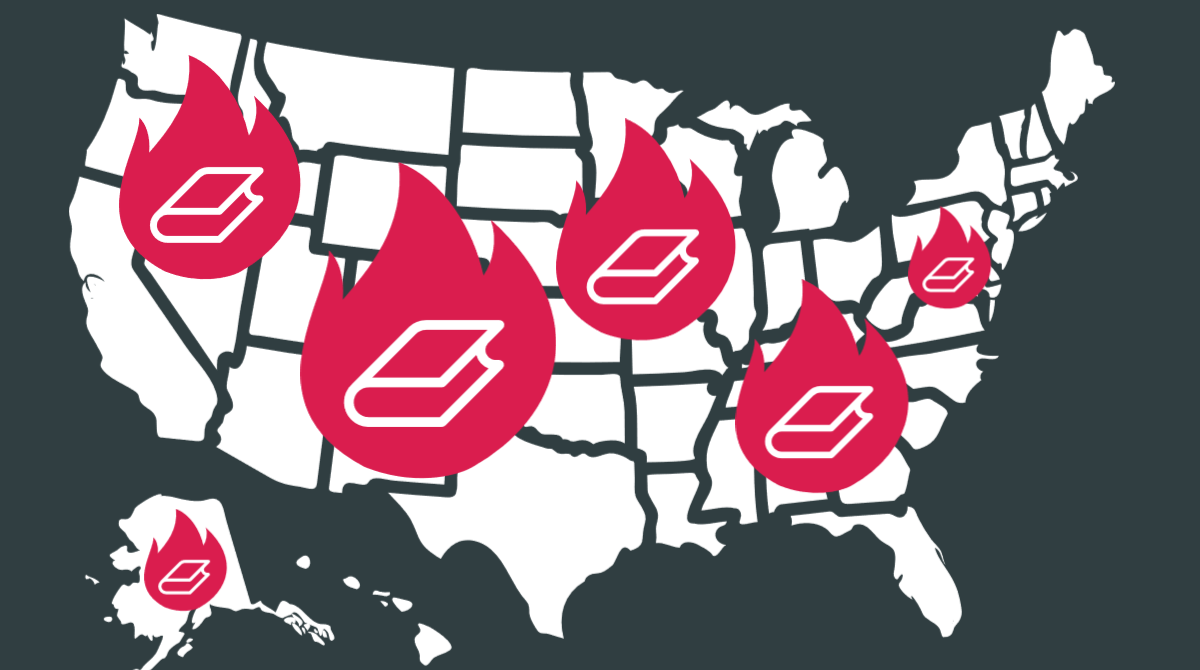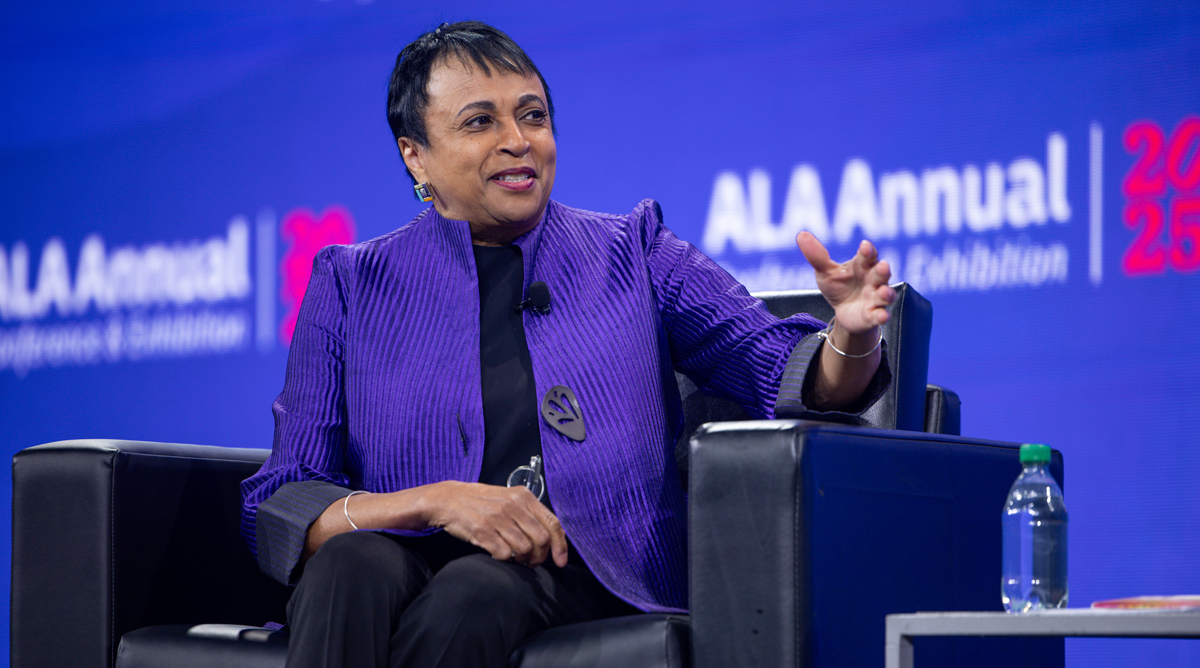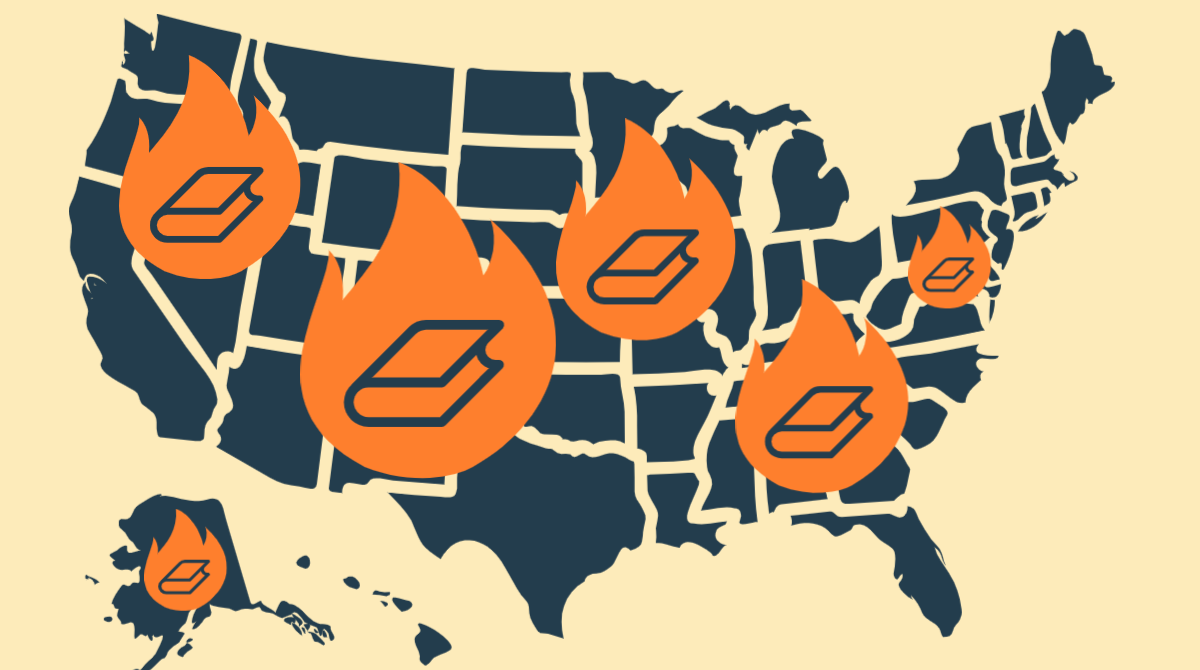Libraries and schools across the country are experiencing unprecedented levels of attempts to ban or remove books from their shelves. This Banned Books Week, we’re raising awareness by highlighting attempts to censor library materials, as well as efforts by librarians, parents, students, and concerned citizens to push back against them. This report includes news from Virginia, Illinois, Indiana, and Oklahoma.
One woman in Virginia responsible for 71 book challenges
A Virginia woman has dedicated herself to challenging at least one book per week, and her efforts have caused a schism in her community as well as hours of unpaid labor for school librarians, reports Business Insider.
Jennifer Petersen spends hours scanning books for content she finds sexually explicit and filing challenges with Spotsylvania County Public Schools. She has one child enrolled in the district and another is a recent graduate. Out of 73 books she read in one year, she challenged 71. (The remaining two books were removed before she got to them).
Some community members have praised Peterson’s efforts, while others have criticized her for wasting time and money. Nearly a dozen people spent 40 hours per week just on her book challenges, according to a library staffer.
University of Chicago Library expands access to banned books amid national debate over censorship
The University of Chicago announced on October 3 that it is expanding access to banned books for researchers and members of the public in Chicago, throughout Illinois, and across the U.S.
The library said the expansion of access to banned books is intended to help address the nationwide increase in book bans, lower barriers to sharing information, and support open inquiry and discourse. Items in the collections at the University’s Regenstein, Mansueto, and Crerar libraries can be consulted by members of the public free of charge, in-person with a visitor pass. Most can be checked out by UChicago patrons and can be borrowed by readers at other libraries through interlibrary loan. The university is also collaborating with the Digital Public Library of America to provide access to banned books for those unable to visit the university’s libraries in person.
“The University’s distinctive culture is built upon its commitment to advancing free expression and free inquiry,” said University of Chicago President Paul Alivisatos. “By providing more opportunities for people nationwide to access a wide range of books, we are putting that fundamental principle into action.”
Author opens store devoted to banned books after her own book was challenged
After Indiana-based author Leah Johnson’s young adult novel, You Should See Me in a Crown, was labeled as “obscene content” and challenged by the Oklahoma Attorney General, the author took matters into her own hands: She opened a store that sells books by, for, and about marginalized people and other books challenged by school or government systems.
Johnson told WFYI that she opened her store to counteract the increase in book bans happening across the country.
“The truth is, this was a product of rage and indignance,” she said. “I was waking up every day and receiving Google Alerts, not just about my books, but my friend’s books that were being banned or removed from shelves or challenged. It was bad enough that it was happening all over the country, but to see it happen in this place that I have invested so much of myself in, this place that raised me, felt particularly insidious.”
Oklahoma Superintendent of Public Instruction asked for tips on inappropriate material in schools, people sent jokes and jeers
When Oklahoma Superintendent of Public Instruction Ryan Walters asked parents for tips on inappropriate material in schools, he didn’t expect to receive memes, pictures of food and animals, and insults, reports The Frontier.
In March, Walters announced the creation of Parent Watch, an email address where concerned parents could notify the Oklahoma State Department of Education about materials in school classrooms and libraries. The Frontier learned that, instead of sending reports on “questionable” materials, the email account was flooded with news alerts from food delivery services, newsletters for LGBTQ+ news, sex toys, and a Peppa Pig Theme Park in Florida. One person emailed the lyrics to songs by My Chemical Romance, Lou Bega, and Vanilla Ice. And some wrote to express their displeasure.
“I am extremely worried about the idea that schools would restrict/ban books from their classrooms,” one person wrote. “This is censorship, and it is not part of our American values.”
Take action
Alarmed by the escalating attempts to censor books? Here are five steps you can take now to protect the freedom to read.
1. Follow news and social media in your community and state to keep apprised of organizations working to censor library or school materials.2. Show up for library workers at school or library board meetings and speak as a library advocate and community stakeholder who supports a parent’s right to restrict reading materials for their own child but not for all
3. Help provide a safety net for library professionals as they defend intellectual freedom in their communities by giving to the LeRoy C. Merritt Humanitarian Fund.
4. Educate friends, neighbors, and family members about censorship and how it harms communities. Share information from Banned Books Week.
5. Join the Unite Against Book Bans movement and visit our Fight Censorship page to learn what you can do to defend the freedom to read in your community.




